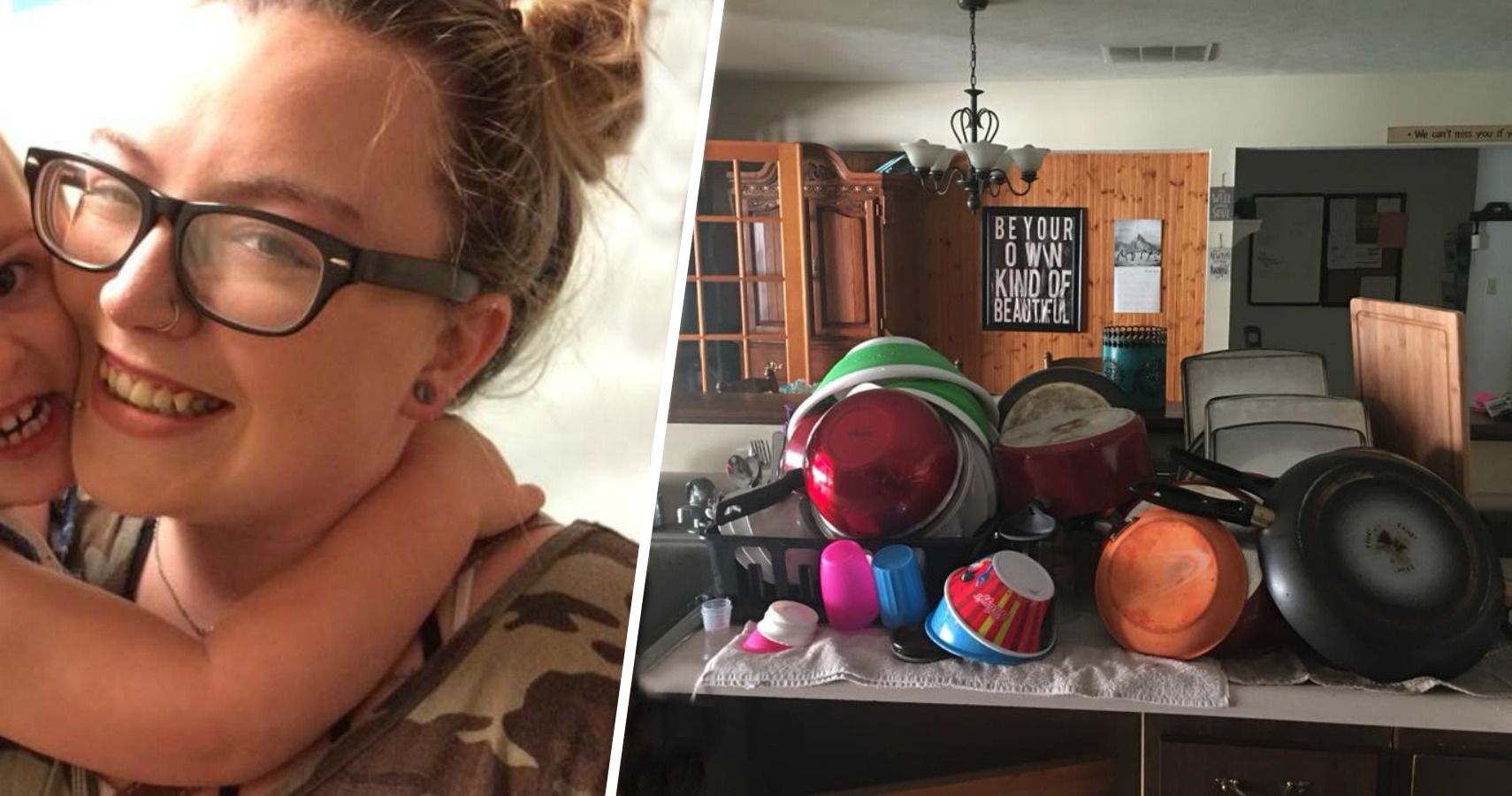While depression and anxiety are becoming more widely understood in society, mental illnesses still have a lot of stigma attached to them. Years ago, depression was stereotyped as the person who sat in the corner, crying all the time. The loss of comedian Robin Williams made people question the face of depression, what it looked like and how really, it could be any one of us. Just because someone is smiling, it doesn't mean they're okay. One mom took to Facebook to shed more light on issues such as this.
Brittany Ernsperger, who lives with both depression and anxiety, uploaded the picture of a stack of clean dishes, with the caption "This is what depression looks like." She goes on to explain that it's not the pile of clean dishes, but that there were that many dishes for her to clean in the first place. Her condition had stopped her from doing the chores for two weeks. Likening depression to rapidly, sinking quicksand, Brittany described her inner battle. On the one hand, she so desperately wanted to do the dishes. On the other, her illness was telling her that she was worthless, stupid and lazy. It's a cycle that sufferers can relate to.
For the mother, who blogs as The Relatable Mom, the dishes are just a small part of her everyday struggle, which can often make simple things like the laundry, dressing or brushing teeth a task that can't be overcome. Brittany isn't alone. Around 15% of new mothers in the US suffer from postpartum depression that can carry on for years. Some mothers find themselves trapped in a pattern of what they know they should do, what they can't, and how guilty they feel for not being able to.
Brittany's post quickly went viral, with almost 200k shares and 700 comments from women thanking her for her honesty so that they could feel less secluded. In an update to the post, Ernsperger said that she wasn't expecting the photo to go so crazy, but that she simply wanted other women to know they aren't alone.
"We can only help one another by lifting each other up," she finished. "I'm here for you."
READ NEXT: New Study Finds One Emotion Is Often Overlooked When Screening For Postpartum Depression

